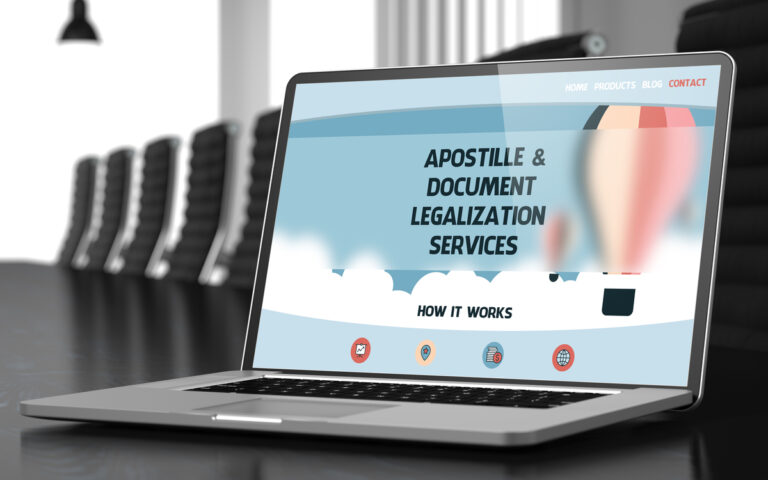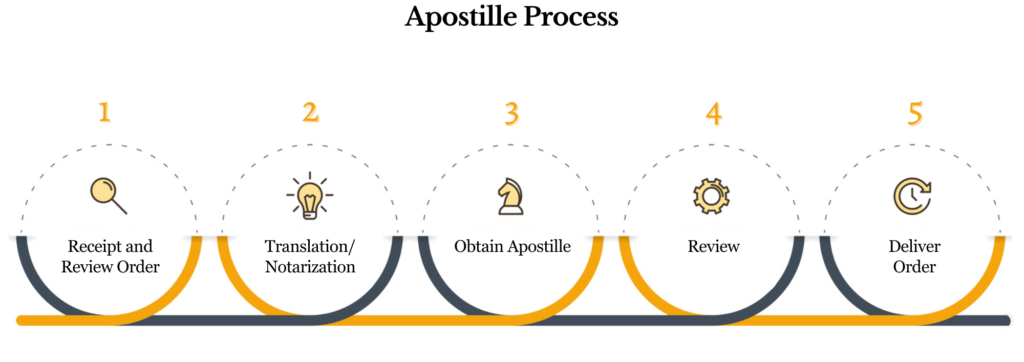Apostille, authentication, and legalization are essential steps in verifying the authenticity of legal documents for use in foreign countries. At Silk Road Multilingual, we are dedicated to being your trusted partner in this crucial process. Our experienced team ensures that your official documents—such as birth certificates, marriage certificates, court orders, diplomas, and academic transcripts—are accurately verified and authenticated to meet the requirements of colleges, universities, USCIS, and other organizations for student visas, work visas, tourist visas, and more.
We understand that navigating the complex apostille process can be overwhelming, especially for busy individuals or those with limited English proficiency. Long wait times and uncertainty about your document status can add to the stress. That’s why we are committed to managing everything for you efficiently and affordably, taking the burden off your shoulders.
Silk Road Multilingual offers prompt apostille services tailored to your needs, covering a wide range of countries to ensure your documents are ready for use wherever required. We pride ourselves on providing exceptional customer service, designed to make the entire process as simple and seamless as possible. Let us handle your apostille, authentication, and legalization needs, so you can focus on what truly matters to you.



The Order Receipt and Review process includes receiving the original document from the client, selecting a preferred processing timeframe from the available options, and assessing whether the document needs translation.



Los países que son parte en el Convenio de La Haya sobre Apostilla son Albania, Andorra, Antigua y Barbuda, Argentina, Armenia, Australia, Austria, Azerbaiyán, Bahamas, Bahrein, Barbados, Bielorrusia, Bélgica, Belice, Bosnia y Herzegovina, Botsuana, Brasil, Brunei Darussalam, Bulgaria, Burundi, Canadá, Cabo Verde, Chile, Colombia, Chipre, Costa Rica, Croacia, Dinamarca, Ecuador, El Salvador, Alemania, Estonia, Fiyi, Finlandia, Francia, Gabón, Georgia, Grecia, Granada, Guatemala, Guyana, Honduras, Hong Kong (China), Hungría, India, Indonesia, Irlanda, Islandia, Islas Cook, Israel, Italia, Japón, Jamaica, Kazajstán, República Checa, República de Corea, República de Kirguistán, Kosovo, Bosnia y Herzegovina, Botsuana, Brasil, Brunei Darussalam, Bulgaria, Burundi, Canadá, Cabo Verde, Chile, Colombia, Costa Rica, Croacia. Kosovo, Kirguistán, Letonia, Lesoto, Liberia, Liechtenstein, Lituania, Luxemburgo, Macao (China), Malawi, Malta, Islas Marshall, Mauricio, México, Moldavia, República de Mónaco, Mongolia, Montenegro, Marruecos, Namibia, Países Bajos, Nueva Zelanda, Nicaragua, Noruega, Omán, Panamá, Paraguay, Perú, Filipinas, Polonia, Portugal, República de Corea (a partir del 1 de junio de 2015), Rumanía, Rusia, Ruanda, San Cristóbal y Nieves, San Marino, Arabia Saudí, Senegal, Serbia, Seychelles, Singapur, Eslovaquia, Eslovenia, Sudáfrica, España, Suecia, Suiza, Tailandia, Antigua República Yugoslava de Macedonia (ARYM), Trinidad y Tobago, Turquía, Turkmenistán, Ucrania, Reino Unido, Estados Unidos de América, Uruguay, Uzbekistán y Venezuela.
